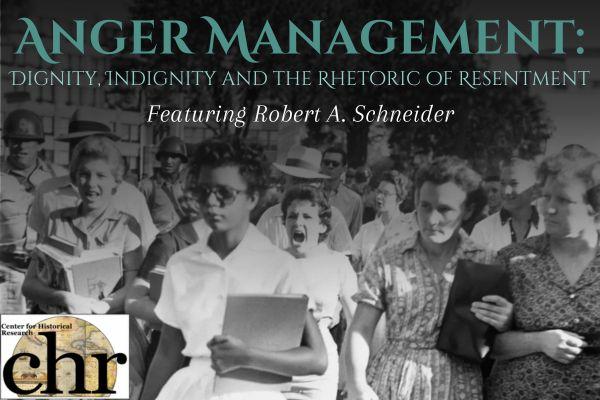
Psychologists and advice columnists tell us that anger is not good—it’s not good for us and it’s worse for those around us. But political anger—that is, the collective expression of angry discontent—surely can be, and has been, effective as a tool for asserting grievances and making claims. In any case, whatever its virtues or liabilities, anger seems to be all-pervasive in our contemporary political culture. We are in, according to Pakaj Mishra, an “Age of Anger.”
In this presentation, I will explore a variety of ways anger and resentment have been deployed, emphasizing not so much “anger” itself—that is, the raw emotion—but rather the modes and means by which anger is expressed or performed. In part, this will be an exploration of the rhetoric of anger (or resentment), looking at how various writers have themselves thought hard how to “be angry” while preserving a measure of dignity. Indeed, for some, especially in the tradition of Black Liberation, from Frederick Douglass to Martin Luther King, Jr., to present themselves in a “dignified” way seemed as important, perhaps even more, than to make a display of their anger. And this is largely true with other collective struggles in the West, including labor movements and the campaign for women’s rights. Since the 1960s, however, the tendency to yoke anger to dignity has seemed to prevail less and less. Instead, “dignity” has been increasingly eclipsed by “self-expression.” Today, commentators like Vincent Lloyd (Black Dignity, Yale, 2022) argue for a very different conception of dignity, one which calls into question traditional, largely liberal, notions of dignity as undermining the quest for liberation.
Robert A. Schneider is Professor History at Indiana University Bloomington. He is the author of four books, most recently The Return of Resentment: The Rise and Decline and Rise Again of a Political Emotion (Chicago, 2023). He has received grants and fellowships from the Simon Guggenheim Foundation, the National Endowment for the Humanities, the American Council of Learned Societies, and the French Government (Bourse Chateaubriand). He has been a visiting fellow at All Souls College and Oriel College, both at the University of Oxford; a visiting lecture at Ecole des Hautes Etudes Paris (three times); and a visiting scholar at Bristol University, the Université de Toulouse, and the University of Pennsylvania. From 2005 to 2015 he was Editor of the American Historical Review.
Co-sponsors: Department of Political Science and the Mershon Center
